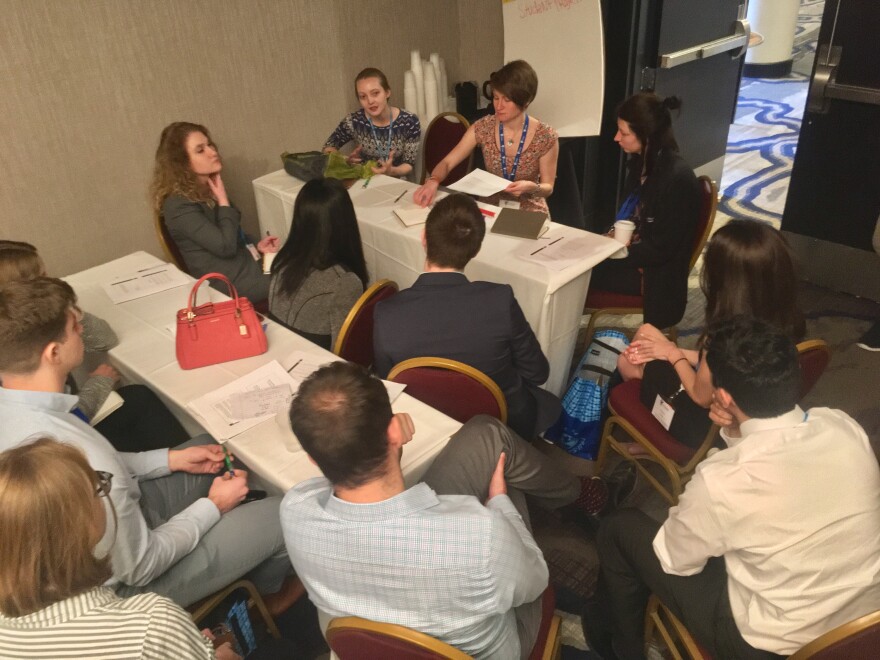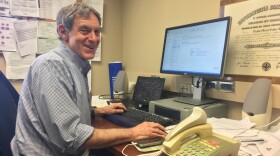Medical students said they are seeking out ways to improve their own training after a conference in Rochester this weekend.
The American Academy of Developmental Medicine and Dentistry held its annual meeting in the downtown Hyatt hotel. People came from across the U.S. and other countries to hear about challenges and successes in medical care for people with disabilities.
I'm;m a mother of a 43-year-old son with intellectual disabilities," said Carolyn Christensen of Illinois. "We've been through a lot in the health care system. I'm very passionate that we need to improve services for people like my son."
Avra Selick, a Ph.D. candidate at York University in Toronto, is on a team researching ways to improve care for people with intellectual or developmental disabilities. She spoke at a panel on challenges that people with disabilities face in acute care settings, like emergency rooms or urgent care clinics.
Part of the problem, Selick said, is that medical professionals don't always realize when their patients have intellectual or developmental disabilities.
"We had emergency department staff saying to us, 'We don't - we don"t have anyone with a disability come to our emergency department. Right?'" Selick said. "Which, of course, is not true."

And medical students attending the conference said that even when staff do know that patients have disabilities, they had still seen some act inappropriately - starting procedures without informing the patient, for example.
"They would come in really hot. They wouldn't say who they were," said Alicia Thatcher, who is about to start her residency in family medicine at the University of Saskatchewan in Canada.
"If they had this preconceived notion that the person wasn't going to talk with them or wasn't going to understand, they wouldn't even start to explain, and they would go right to town on that person's body," Thatcher said.
So the students started working on an idea to address the problem. They said the discussion at the conference motivated them to make a plan to improve the training offered to future students. They said they will make training videos for medical students and medical professionals who work with people with disabilities.
The students' aim is to include people with disabilities in all parts of the process, from script development to film editing and distribution.



